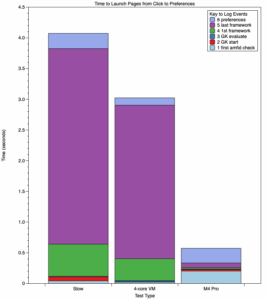Taking a closer look at AI’s supposed energy apocalypse

Enlarge / Someone just asked what it would look like if their girlfriend was a Smurf. Better add another rack of servers! (credit: Getty Images)
Late last week, both Bloomberg and The Washington Post published stories focused on the ostensibly disastrous impact artificial intelligence is having on the power grid and on efforts to collectively reduce our use of fossil fuels. The high-profile pieces lean heavily on recent projections from Goldman Sachs and the International Energy Agency (IEA) to cast AI’s “insatiable” demand for energy as an almost apocalyptic threat to our power infrastructure. The Post piece even cites anonymous “some [people]” in reporting that “some worry whether there will be enough electricity to meet [the power demands] from any source.”
Digging into the best available numbers and projections available, though, it’s hard to see AI’s current and near-future environmental impact in such a dire light. While generative AI models and tools can and will use a significant amount of energy, we shouldn’t conflate AI energy usage with the larger and largely pre-existing energy usage of “data centers” as a whole. And just like any technology, whether that AI energy use is worthwhile depends largely on your wider opinion of the value of generative AI in the first place.
Not all data centers
While the headline focus of both Bloomberg and the Washington Post’s recent pieces is on artificial intelligence, the actual numbers and projections cited in both pieces overwhelmingly focus on the energy used by Internet “data centers” as a whole. Long before generative AI became the current Silicon Valley buzzword, those data centers were already growing immensely in size and energy usage, powering everything from AWS web servers to online gaming services, Zoom video calls, and cloud storage and retrieval for billions of documents and photos, to name just a few of the more common uses.




